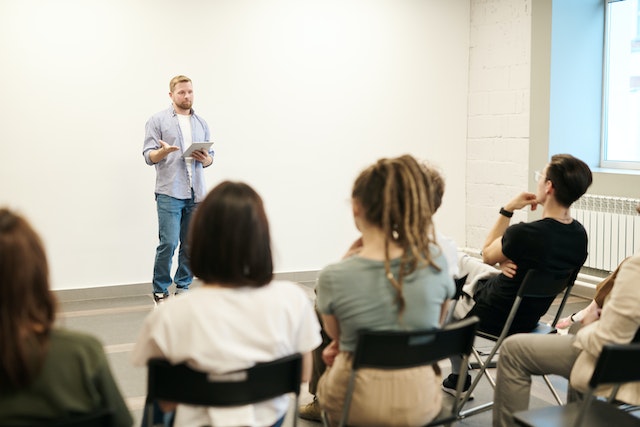Introduction Effective communication is a vital skill in every industry, Additionally, attentive listening contributes significantly to successful exchanges. Improving your listening skills can positively impact relationships, making better choices and fostering collaboration with others In this article, we explore the importance of listening skills and provide ten practical techniques to enhance your ability to listen
Introduction
Effective communication is a vital skill in every industry, Additionally, attentive listening contributes significantly to successful exchanges. Improving your listening skills can positively impact relationships, making better choices and fostering collaboration with others In this article, we explore the importance of listening skills and provide ten practical techniques to enhance your ability to listen actively and empathetically.
Why are Listening Skills Important?
Building excellent communication necessitates the cultivation of strong listening abilities. Being an attentive listener allows you to understand others’ thoughts, behaviors, and feelings better, This boosts your power to inspire and effectively guide the development of individuals.. Moreover, listening is crucial for organizations to adapt to market trends and consumer needs, ultimately resulting in heightened interactions and cultivating stronger bonds in both personal and work-related contexts. In business roles, having these skills is highly valuable like sales, negotiation, coaching, and numerous other fields.
Techniques for Enhancing Your Skill in Active Listening
Hold eye contact throughout the conversation with the Speaker
Devote your full attention to the speaker by not letting any distractions divert your focus and continuously making eye contact. Displaying nonverbal cues, such as sustaining eye contact, demonstrates your authentic concern for their words, Urging them to communicate without inhibition.
Visualize What the Speaker is Saying
Visualize the topic as the speaker talks as the speaker talks to help retain information and keywords. Focus is improved through visualization Preventing premature response planning is one of its effects.
Limit Judgments
While listening, refrain from criticizing the speaker or making negative evaluations. Maintain a receptive attitude and comprehend that everybody brings a distinct viewpoint. Engaging in unbiased listening fosters a more beneficial exchange of ideas. encourages the emergence of a dialogue that is constructive and beneficial..
Don’t Interrupt
Develop the skill of being patient and abstain from interrupting the speaker, regardless of their slow speech. Misconveying information is what happens when one interrupts, consequently hindering effective communication. Instead, let them finish their thoughts before responding.

Photo by Christina Morillo: https://www.pexels.com/photo/man-wearing-gray-crew-neck-long-sleeved-shirt-1181425/
Wait for a Pause to Ask Questions
In case you’re unsure about something, delay until a convenient pause in the discussion to request further explanation. Asking questions without interrupting shows your attentiveness and fosters better communication.
Ask Clarifying Questions
Pose questions that pertain to your understanding of the topic, keeping the conversation on track. By showcasing your involvement and eagerness to delve deeper into the matter, you display…
Empathize with the Speaker
Practicing empathy is crucial to ensure successful comprehension. Mirror the speaker’s emotions for the purpose of cultivating a more profound relationship and support an environment conducive to open sharing.
Pay Attention to Nonverbal Cues
Take note of the speaker’s physical gestures and vocal expression to enhance your comprehension of their emotions and objectives.

Photo by fauxels: https://www.pexels.com/photo/photo-of-women-talking-while-sitting-3182808/
Provide the Speaker with Feedback
Display indications of active listening by providing both verbal and nonverbal feedback. To indicate your active participation, try using statements like “I grasp”, nodding approvingly, and displaying the necessary facial expressions.
Practice Listening
Improve your skill in attentive listening by actively observing your behavior during conversations. Take notes after interactions, listen to audiobooks or podcasts without visual aids, and Repeat and review short segments to enhance memory retention and communication abilities.
Conclusion
Developing better listening skills is vital for encouraging productive dialogue and cultivating solid relationships. in various personal and work-related environments. By actively utilizing these ten methods, including elements like sustained eye contact, showing empathy towards the speaker, and giving feedback, you can strengthen your aptitude for establishing meaningful connections with individuals. Succeed in multiple business positions by using this. Improving your listening skills can augment your overall communication effectiveness and elevate your worth as an accomplished team contributor.

















Leave a Comment
Your email address will not be published. Required fields are marked with *